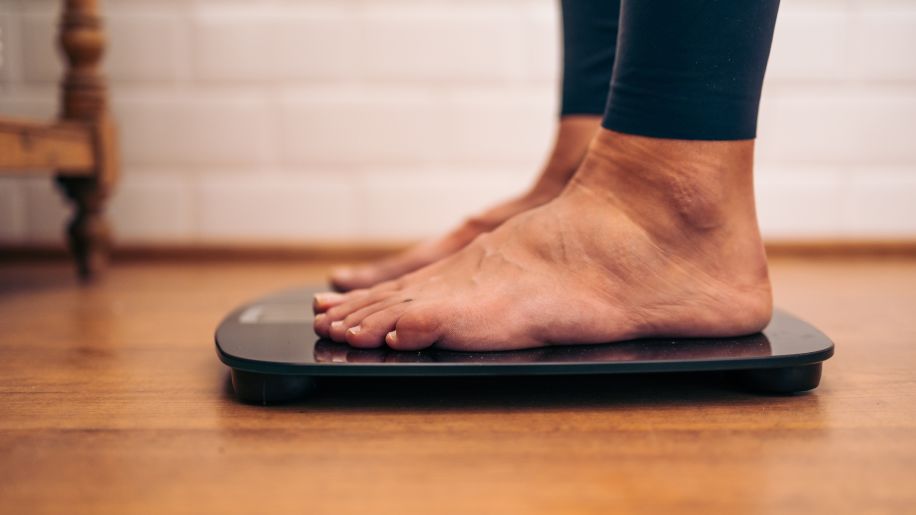7 lifestyle changes to make after heart failure
Heart failure can’t be cured, but these healthy habits can help protect your ticker.

Heart failure, which affects about 5.7 million people in the U.S., is a condition in which the heart is weakened to the point where it's lost its ability to fill up with enough oxygen-rich blood, or it doesn't have the capacity to pump blood throughout the body. Heart damage and weakness caused by high blood pressure, coronary heart disease, diabetes or other conditions… Show More
Heart failure, which affects about 5.7 million people in the U.S., is a condition in which the heart is weakened to the point where it's lost its ability to fill up with enough oxygen-rich blood, or it doesn't have the capacity to pump blood throughout the body. Heart damage and weakness caused by high blood pressure, coronary heart disease, diabetes or other conditions can lead to heart failure.
Those most at risk include people who are overweight or obese, those who have had a heart attack and people over age 65, since the heart muscle can weaken over time. Common indicators of heart failure include wheezing, shortness of breath, rapid heart rate and a buildup of fluid in the feet or ankles—edema. Any of these symptoms should be discussed with your healthcare provider at the onset.
To date, there is no cure for heart failure. But treatments such as medication, lifestyle changes and, in extreme cases, a heart transplant, make living with the condition possible. Find out which lifestyle improvements help protect your ticker from further damage after heart failure.
Medically reviewed in November 2019.
Show Less
Kick bad Habits
Smoking is bad for your health, regardless of any other conditions you might have. Those with heart failure ought to be especially careful—smoking increases your heart rate and ups your blood pressure, both of which put added stress on your ticker. Making matters worse, smoking decreases the amount… Show More
Smoking is bad for your health, regardless of any other conditions you might have. Those with heart failure ought to be especially careful—smoking increases your heart rate and ups your blood pressure, both of which put added stress on your ticker. Making matters worse, smoking decreases the amount of oxygen in the blood.
Drinking can put a strain on your heart as well. Alcohol can raise your blood pressure and heart rate, and may even damage the heart muscle. Moderate drinking—one drink a day for women and two for men—might be acceptable; talk to your doctor before taking a sip.
Show Less
Manage your stress
Stress affects more than your emotional state—it can up your heart rate and elevate blood pressure. Stress overload can also lead to some unhealthy coping behaviors, such as smoking, drinking and overeating.
It’s easy to become overwhelmed by daily stressors, but there are proven ways to relax,… Show More
Stress affects more than your emotional state—it can up your heart rate and elevate blood pressure. Stress overload can also lead to some unhealthy coping behaviors, such as smoking, drinking and overeating.
It’s easy to become overwhelmed by daily stressors, but there are proven ways to relax, unwind and calm down:
- Take time to meditate. Find a comfortable spot where you won’t be interrupted, close your eyes and breathe deeply for a few minutes.
- Talk to someone you trust. Sharing your thoughts and feelings can help alleviate stress.
- Get up and move. Exercise benefits your body and mind.

Control your weight
The leading causes of heart failure are coronary heart disease, high blood pressure and diabetes, all of which can be influenced by your weight. If you are overweight or obese, working with your doctor to shed unwanted pounds can help relieve the stress excess weight puts on your heart. A… Show More
The leading causes of heart failure are coronary heart disease, high blood pressure and diabetes, all of which can be influenced by your weight. If you are overweight or obese, working with your doctor to shed unwanted pounds can help relieve the stress excess weight puts on your heart. A healthy diet, controlled portion sizes and adequate exercise can help this process.
But there’s more to the story. Rapid weight gain is a sign of excess fluid retention, which stresses the heart, while rapid weight loss is a sign of severe heart failure. You’ll likely notice such dramatic fluctuations in your weight, but it’s still important to weigh yourself regularly. For optimal accuracy, weigh yourself at the same time each morning and call your doctor if the number begins to fluctuate in either direction.
Show Less
Eat for your heart
A diet rich in fruits, veggies, whole grains and lean proteins provides nutrients your body needs to thrive. If your meals regularly consist of food laden with sugar, salt and fat, the opposite is true. Maintaining a nutritious diet is especially important if you’re living with heart failure.… Show More
A diet rich in fruits, veggies, whole grains and lean proteins provides nutrients your body needs to thrive. If your meals regularly consist of food laden with sugar, salt and fat, the opposite is true. Maintaining a nutritious diet is especially important if you’re living with heart failure. Unhealthy fats can further clog your arteries, while a high-sodium diet can lead to water retention, taxing your heart and causing swelling and shortness of breath. Your healthcare provider may prescribe a specific eating regimen, but there are certain foods that are beneficial for your heart: produce; whole grains; fatty fish—tuna and salmon; nuts and seeds; healthy fats—avocado and olive oil.
Show Less
Stay active
Whether you’re living with heart failure or not, research suggests that exercise has physical and mental benefits. Being physically active most days of the week can improve the function of your cardiovascular system, which can help reduce fatigue and shortness of breath.
If you’re thinking about… Show More
Whether you’re living with heart failure or not, research suggests that exercise has physical and mental benefits. Being physically active most days of the week can improve the function of your cardiovascular system, which can help reduce fatigue and shortness of breath.
If you’re thinking about starting an exercise regimen, first talk to your healthcare provider about a plan that is safe for you. Cardiac rehab—a hospital program designed specifically for your medical needs, including an exercise program—may be an option to discuss.
Show Less
Get enough shut-eye
Too little sleep can have adverse effects on your heart health. But getting enough sleep—most adults need between seven and nine hours each night to awaken rested—can be especially challenging for those with heart failure. One study of 3,400 people reported in the Journal of Clinical Sleep Medicine… Show More
Too little sleep can have adverse effects on your heart health. But getting enough sleep—most adults need between seven and nine hours each night to awaken rested—can be especially challenging for those with heart failure. One study of 3,400 people reported in the Journal of Clinical Sleep Medicine found that those with clinical heart failure struggled to get adequate rest. Sleep apnea is a common problem. If you find yourself waking up frequently during the night, gasping for air, or if you snore loudly, consider talking to your doctor about getting tested for sleep apnea. Also discuss switching up the time you take your medications. Taking a diuretic early in the day may decrease the number of times you wake during the night to use the bathroom.
Other strategies for improving sleep include avoid eating big meals, taking naps and monitoring the amount of caffeine you drink during the day. Maintaining a sleep schedule and exercising daily can also boost your ability to sleep.
Show Less
Know your numbers
A change in blood pressure or other symptoms may signal a potential problem; that’s why it’s important to keep a list of any changes and report them to your healthcare provider.
Monitoring your fluid intake is essential. If you notice that your body is holding excess water, especially around your… Show More
A change in blood pressure or other symptoms may signal a potential problem; that’s why it’s important to keep a list of any changes and report them to your healthcare provider.
Monitoring your fluid intake is essential. If you notice that your body is holding excess water, especially around your feet and ankles, talk to your doctor about how much liquid you should drink each day. Your provider may also prescribe a diuretic.
It’s also imperative to maintain healthy blood pressure levels. The American Heart Association recommends that you monitor your blood pressure regularly—at home and at your doctor’s office. Monitoring it at home and recording the numbers provides your healthcare provider with an ongoing picture of your heart function; it can also help identify false readings.
Show LessFeatured Content

slideshow

article


video

article


video
